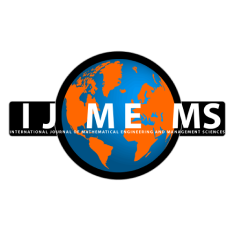Sai Ganga
School of Engineering and Technology, BML Munjal University, Gurugram, 122413, Haryana, India.
Ziya Uddin
School of Engineering and Technology, BML Munjal University, Gurugram, 122413, Haryana, India.
Rishi Asthana
School of Engineering and Technology, BML Munjal University, Gurugram, 122413, Haryana, India.
Hamdy Hassan
Energy Resources Engineering Department, Egypt-Japan University of Science and Technology (E-JUST), Alexandria, Egypt.
Arpit Bhardwaj
School of Engineering and Technology, BML Munjal University, Gurugram, 122413, Haryana, India.
DOI https://doi.org/10.33889/IJMEMS.2023.8.5.047
Abstract
In this study, a variety of machine-learning algorithms are used to predict the viscosity and thermal conductivity of several water-based nanofluids. Machine learning algorithms, namely decision tree, random forest, extra tree, KNN, and polynomial regression, have been used, and their performances have been compared. The input parameters for the prediction of the thermal conductivity of nanofluids include temperature, concentration, and the thermal conductivity of nanoparticles. A three-input and a two-input model were utilized in modelling the viscosity of nanofluid. Both models considered temperature and concentration as input parameters, and additionally, the type of nanoparticle was considered for the three-input model. The order of importance of the most influential parameters in predicting both viscosity and thermal conductivity was studied. A wider range of input parameters have been considered in an open-access database. With the existing experimental data, all of the developed machine learning models exhibit reasonable agreement. Extra trees were found to provide the best results for estimating thermal conductivity, with a value of 0.9403. In predicting viscosity using a three-input model, extra trees were found to provide the best result with a value of 0.9771, and decision trees were found to provide the best results for estimating the viscosity using a two-input model with a value of 0.9678. In order to study heat transport phenomena through mathematical modelling, it is important to have an explicit mathematical expression. Therefore, the formulation of mathematical expressions for predicting viscosity and thermal conductivity has been carried out. Additionally, a comparison with the Xue and Maxwell thermal conductivity models is made to validate the results of this study, and the results are observed to be reliable.
Keywords- Nanofluid, Machine learning, Thermal conductivity, Viscosity.
Citation
Ganga, S., Uddin, Z., Asthana, R., Hassan, H., & Bhardwaj, A. (2023). Modelling of Viscosity and Thermal Conductivity of Water-Based Nanofluids using Machine-Learning Techniques. International Journal of Mathematical, Engineering and Management Sciences, 8(5), 817-840. https://doi.org/10.33889/IJMEMS.2023.8.5.047.



